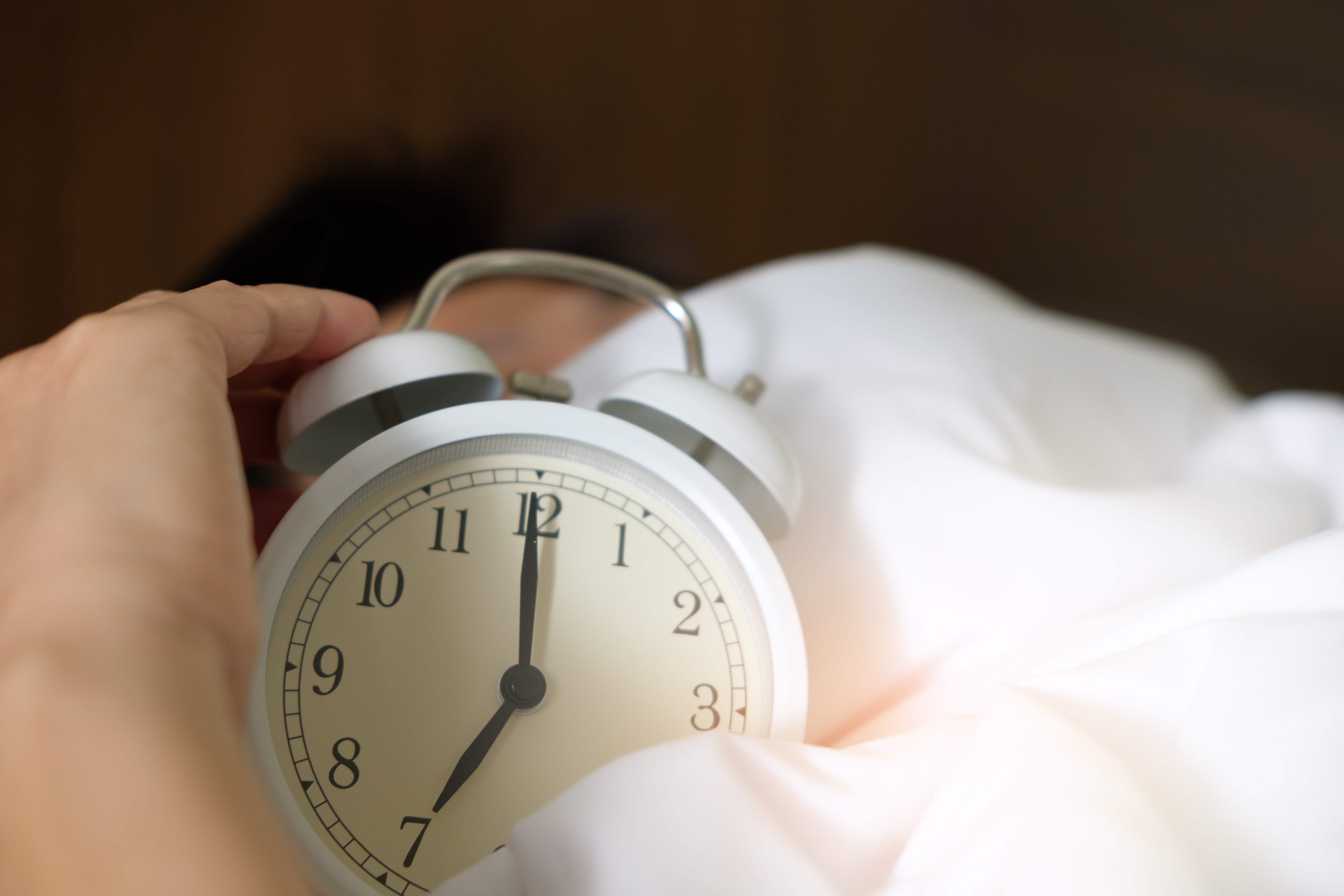Masterclass - Better Sleep
Getting Better Sleep
This post is a summary of a Masterclass by Matthew Walker, a neuroscientist focused on sleep. I’ll be honest, I stumbled onto this Masterclass by accident, but I was hooked from the jump. I didn’t realize the significance of a healthy sleep schedule, and after this Masterclass, my views on sleep have changed drastically.
I’ve always tried to keep a steady sleep schedule, but I never really understood the individual components at play related to sleep. I also never understood the significance of good sleep. We tend to relate sleep with laziness. Those who get 8 hours of sleep a night are lazy and are not driven.
Matthew Walker rips this ideology down and clearly explains why a good night’s sleep is necessary if you want to perform to your highest potential. Sleep is the elixir of life, it’s our superpower, and it should be our best friend. If you decide to take this Masterclass, I can almost assure you that you will view sleep in a new light, and you will straighten your sleep life.
How To Improve Your Sleep
If you don’t have the time to take Dr. Walker’s Masterclass, I would advise you to take the following steps to reclaim your sleep.
I am not an expert in the field of sleep and my explanations might not be 100% accurate. But I still believe that the overall message and point will be correct and accurately represent the lessons I learned from Dr. Walker.
1. Develop a Consistent Sleep Schedule
Go to sleep at the same time and wake up at the same time all week (yes, including the weekend). Your body has a circadian rhythm, which is its personal 24 hours clock. This tells you when it’s time to be up and when it’s time to go to sleep. If you’re walking up at a different time throughout the week, you’re not giving your circadian rhythm a fighting chance.

2. Stop Caffeine Intake In the Afternoon
When you wake up after a good night’s sleep, your body’s adenosine (sleep pressure) starts at 0 (let’s use a scale of 0-100). This indicates to your body that you are not sleepy. As the day progresses your adenosine builds up, and when it’s time for bed your adenosine (sleep pressure) reaches 100, releasing melatonin, which gets you drowsy and puts you to bed.
When you drink caffeine, it attaches itself to the adenosine. This makes your body think it has less adenosine, which is not the case. So it could be bedtime, and instead of being at 100, your body thinks its adenosine levels are at 50. Caffeine has a half-life of 8 hours, therefore it is advised that you don’t drink it past 2 PM at the latest.
3. Dim Your Lights
When your body realizes the adenosine build-up, it releases melatonin to get you drowsy and put you to bed. But melatonin release is not that simple. The body produces melatonin in the pineal gland, but the body will only release the melatonin when its night time. It receives inputs from the retina, and if it determines that it’s not nighttime yet, it won’t release the melatonin.
Therefore, if you want your body to properly produce and release melatonin you need to mimic darkness and dusk. Darkness is incredibly rare for us now. Everything we do is surrounded by light. Therefore the best thing you can do for melatonin production and release is:
-
Dim your lights at least an hour before bedtime. There are various lightbulbs that you can purchase that will automatically do this for you. This will indicate to your eyes that the time for sleep is near.
-
Let go of electronics. Try to put them down entirely an hour before bed. If you can’t then at the very least reduce the brightness and get a blue-light filter.
4. Sleep in a Cool Environment
Sleeping in a cool environment will help you get to sleep and stay asleep. Its recommended to try to fall asleep in a room that is 67.5 degrees Fahrenheit. It’s better to sleep in a cold room and bundle up than to sleep in a warm room.
You can take a hot shower or bath before bed to lower your body temperature. When you take a hot shower, your body heat rises to the tip of your skin, which makes it easier to release.
Benefits of a Good Nights Sleep
A good night’s sleep has many benefits. It is the foundation for good health, not simply another component of it. A few highlights of good sleep are:
-
Improved brain functionality throughout the day.
-
Better long-term memory.
-
The ability to learn things throughout the day.
-
Retaining what you learned throughout the day.
-
Cleansing your brain and body of unhealthy toxins, proteins, and hormones.
-
Helps us overcome past trauma.
-
Improve motor skills and muscle memory
-
Reduce inflammation and help you heal.

The list goes on and on about the positive impact of a good night’s sleep. On the other side, a few effects of not getting a good nights sleep are:
-
Higher likelihood of developing specific types of cancer.
-
Higher chances of developing mental diseases as you age, such as Alzheimer’s, dementia, schizophrenia, and more.
-
Vaccines become less effective.
-
Make you crave unhealthy foods.
-
Cause you to have unregular menstrual cycles.
-
Make your body release less insulin.
-
Decrease your peak performance metrics.
-
Decrease your lung capacity.
-
Decreases our ability to sweat.
-
Faster rates of lactic acid build-up.
-
Increase the risk of injury.
Final Thoughts
Sleep is a vital part of our life, for many of us, it might seem like a waste, something we are forced to do that doesn’t provide us any value. But one could argue, that sleep is the most important thing we can do for the quality and quantity of our life. If we want to live a long, healthy, fulfilling life we should prioritize our sleep.
Good sleep will help us learn faster, learn more, retain what we learned, live a healthier life, make us feel better, help us heal and so much more. If we don’t take our sleep seriously we drastically impact our quality of life. Since sleep is 1/3 of our life, we should take it seriously as it has a direct impact on the quality of the other 2/3.
Notes From The Masterclass
This section captures some personal notes that I took during the masterclass.
Key Words
-
Circadian Rhythm - Our bodies 24 rhythm. This rhythm is unique to each of us, it’s how our body determines its sleep time and time to wake up.
-
REM - Rapid Eye Movement. This is when we are in deep sleep and dream. REM is important because it stimulates the areas of the brain that help with learning and is associated with the increased production of proteins. Your brain also removes toxins and bad proteins from itself.
-
NREM - Non REM. NREM has 3 phases. During the last stage of NREM, the body repairs and regrows tissues, builds bone and muscle, and strengthens the immune system.
-
Adenosine (Sleep Pressure) - Throughout the day our sleep pressure increases. By the end of the day, our sleep pressure is full which indicates to us, that it’s bedtime.
-
Melatonin - A chemical that the brain releases which causes us to get drowsy and sleepy. Melatonin is extremely light-sensitive. If your room is too bright at night your body might not release the amount of melatonin needed.
-
Sleep debt - This occurs when you’re not getting the required sleep.
Notes
-
It’s important to have a consistent sleep schedule. This allows us to keep on track with our circadian rhythm.
-
Do not drink caffeine after noon. This tricks our “sleep pressure,” making us think we are not ready for sleep.
-
Alcohol is bad for sleep. People who have a few drinks before sleep have a harder time retaining the knowledge they learned throughout the day.
-
People are night owls or morning larks by their genetic makeup. They can also have phases in their lives where they are one or the other.
-
Can’t pay off sleep debt on the weekend
-
People who undersleep cant tell.
-
Acute death risk when you don’t get enough sleep, drowsy driving.
-
Naps can be useful, have them early and keep them short. The issue is that they can drop your Adenasen.
-
If you have a bad night’s sleep, avoid waking up later and avoid naps. Let your adenosine build up!
-
Nap before 2-3 pm. 15-20 minutes of sleep
-
Need sleep before and after learning to integrate everything you learn.
-
Need sleep before learning, like a dry sponge to soak everything up. 40% decline when trying to learn while sleep deprived.
-
Sleep deprivation shuts down the hippocampus.
-
Need sleep after learning to cement everything we learn, it’s like the save button.
-
The brain will replay what we learned in the late stages of NREM.
-
Sleeping on a problem is a real thing. When you sleep on a problem, your brain can connect ideas. During REM, the brain integrates and connects things we learned.
-
People have been able to solve great problems in their sleep.
- This happened to me with the NGINX problem at PromoteIQ.
-
Aging will start deteriorating as you age.
- We wake up more often and stay awake longer.
-
As we get older the strength of the circadian rhythm weakens.
-
We don’t wake up with energy and don’t get drowsy and tired at night.
-
The brain isn’t releasing as much melatonin.
-
-
Relationship between sleep and Alzheimers.
-
People who sleep less than 6 hours a night have a higher chance of building proteins that cause Alzheimer’s.
-
Even if someone gets less sleep for one night they see a higher incline of “bad” proteins.
-
During REM, our brain’s sewage system doesn’t get rid of the “bad” proteins.
-
Sleep is your sanitary salvation.
-
-
People who get less sleep have a hyper-reactive amygdala.
- The frontal cortex connection to the amygdala was severed.
-
In the last 20 years, walker has not been able to find a single psychiatric case where sleep was not an issue.
-
Rem helps us deal positively with emotional experience. It’s like dulling a knife.
-
People who dream about their trauma in Rem heal better.
-
With less sleep, we have less emotional empathy for others. We can’t read body language as well.
-
Some parts of our brain work harder during REM sleep.
-
Time dilation can occur during our dreams.
-
In NREM time can go faster
-
In REM it can slow down.
-
-
Sleep can often be more important to your health than exercise and diet.
-
The shorter your sleep, the shorter your life.
-
People with only 4 hours of sleep had a 70% decrease in “killer cells.”
- Chances of developing certain cancers can increase
-
During NREM 3 and 4, the brain creates more “killer cells.”
-
Vaccines are less effective if you get less sleeps.
-
A lack of sleep can decrease their testosterone level by 10 years.
-
Women with bad sleep schedules can have dis-regular menstrual cycles as well as higher chances of miscarriage.
-
If you have cancer and you don’t get enough sleep, cancer can grow and spread faster.
-
Genes within your DNA can be down-regulated that relate to immunity. Genes related to stress, inflammation, and other negative things can be up-regulated.
-
Bad sleep will negatively impact your diet and health.
-
When people don’t get enough sleep, their amygdala lights up at the thought of unhealthy foods.
- Usually, your pre-frontal cortex tells you not to eat it, but when you are sleep-deprived, the pre-frontal cortex is compromised.
-
With a lack of sleep, leptin decreases, and ghrelin increases. You want to eat more unhealthy food and you feel less full.
-
With insufficient sleep, we release less insulin and our body doesn’t pay attention to the insulin being released.
- A doctor might consider you as pre-diabetic.
-
Diets high in sugar and low in fiber worsen your sleep, make you wake up at night.
-
Don’t go to bed hungry or too full. Stop eating 2-3 hours before bedtime.
-
Sleep may be the best legal PED.
-
A lack of sleep will
-
Decrease your peak performance metrics.
-
Decrease your lung capacity.
-
Decreases our ability to sweat
-
Faster rates of lactic acid build-up
-
Increase risk of injury
-
-
Sleep will help
-
Reduce inflammation
-
Help with recovery
-
-
Physical activity can improve our sleep, length, and quality.
- Less time trying to sleep
-
People in later stages of late will have more REM and deep sleep with exercise.
-
Don’t exercise before bedtime.
-
Basic procedural motor skills can be enhanced in our sleep. In some cases 20-30% increase from the day prior.
-
Practical tips for better sleep
- Regularity - keep your circadian rhythm tight. This will improve quality and quantity.
-
Wind Down - Develop a sleep ritual that will give your body the ability to power down.
-
Take 5 minutes to write down worries or concerns.
-
Keep it Cool - Set temperature appropriately, 67 degrees Fahrenheit.
-
Adjust The Light - Dim down the lights an hour before. Stay away from screens an hour before and dim the brightness.
-
-
Things to Avoid -
-
Avoid Caffeine during the afternoon or evening.
-
Don’t go to bed tipsy
-
No nicotine before bed
-
Sleeping pills suck
-
-
Limit the bed for intimacy and sleep.
-
Don’t use your bedroom for anything else.
-
If you wake up in the middle of the night and can’t sleep, wait 25-30 minutes and then walk it out.
-
Track Your Sleep - Use something complimentary to track your sleep.
-
-
Plan your work schedule with your sleep.
-
Don’t be afraid to stand up for your sleep.





